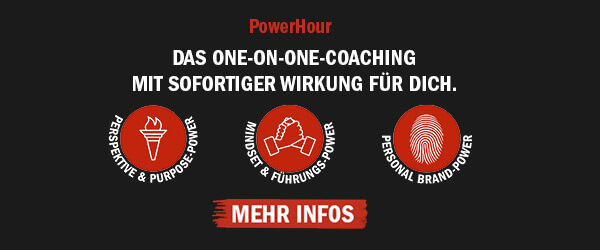Her eyes lit up when she approached me on the street yesterday, the young lady. Yes, really!
She was on assignment for a daily newspaper and asked me, like other passers-by, what I thought of the Corona situation and what measures I felt were still to come.
But after my spontaneous pavement keynote for the journalist and our joint baby elephant about the country, the people & Corona, something popped into my head. Is it already that time with me? I said: "What lockdown we will experience depends massively on people's own responsibility, but anyone who walks through the city for a quarter of an hour instantly gives up hope of that.
TOO LAZY TO READ ON? THEN LISTEN TO ME:
In the blogcast, I read this recent blog article to you. With emphasis, of course!
So is it already that way with me now? Is hope something I once had? Even as I was thinking this, I knew what to do: No! If we give up everything, hope certainly won't. And if it takes a miracle: hope dies last.
Wrong again, crucifix ten!
Hope lives first, what else?!?
Yes, yes! Where would we end up? That's right: nowhere. So live hope first!
Where has it gone, the hope?
In the conversations I have, the "general situation" is naturally always a topic, and it is always about the so-called mood. The mood has darkened rapidly in recent weeks. Even among those who have neither health problems nor acute economic problems, the unpredictability of one's own actions and the rampant frustration and weariness in one's environment are painfully noticeable. There's nothing you can do about it.
Quite a few have struck resignation as the basic chord of their new, gloomy melody of life, the gloomy grey sky still hangs full of violins, but we tune them to the new concert pitch: despondency. A helpless shrug of the shoulders beats the beat.
Where has hope disappeared to? Have the myriads of baby elephants, who mostly don't stand between us anyway, sucked it up completely like Wallace & Gromit sucked up rabbits? Has it fallen blissfully asleep in the zoom-fatigue, hope?
Yes, it's true, you don't have to go far out of the house to find plenty of inconsiderate idiots. When in doubt, they will find you at every turn.
Yes, it is also true that a problem lurks around every corner; for the life of us, we don't know how we will ever solve many of them.
Yes, it's true: moods infect, drag along, drag down. Moods permeate the corridors like the smell of rot and nest - in the curtains, in the upholstery on the sofa, in the clothes. Everything already smells ... inside us.
Wrong again!
Moods are like traffic jams on the motorway: we are not in them, we are the traffic jam. We don't get into the mood, moods don't come into us, they come out of us. We decide for ourselves which mood it is. We create them, and there are not only bad moods, right?
We make the world the way we don't like it. They have always existed, the inverted mood cannons: As soon as a spark of good mood arises, they load up and shoot until no more sparks fly.
Are you all right?
We furnish our space with the story we make up inside ourselves. We can decide for ourselves what it is: a Hollywood swing or a coffin.
It all depends on the perspective. Does hope die last or live first?
Sometimes we need external impulses to adjust our mood, some tried and tested tools, the sharpened view from the eagle's perspective. If this is the case for you, your team or your company, then you will probably find what you are looking for here. Many people have already benefited substantially from this!
Sometimes teams - indeed, whole organisations and companies - need a boost from a cocktail of confidence, courage, change of perspective and good humour, a frustration vaccination with immediate effect. If you think this could be good for you and your people (who doesn't?), here's the right recipe for you. here's the right recipe for you.
Are we in touch?
With the terrorist attack of a few days ago, Vienna and Austria now have yet another piece on the table, the processing of which on a factual as well as on an emotional level will demand a lot of effort and time from many. The great first wave of dealing with the topic washed a wiener-hearted "Schleich di, du Oaschloch" (Get lost, you shithole) onto the littered shores of the social media. An exclamation that drove hot spikes of scepticism into my flesh in several places. Not only me, as I know.
Irmgard Pretzner, the sister of one of the attack victims, said in her obituary that her murdered sister Gudrun would have told the assassin, if it had been possible: "Put down the gun and sit down here with me. Tell me what makes you so angry." In an interview on ORF television, she also pleaded that care should be taken to ensure that young people do not become radicalised in the first place.
I think that in the attitude of this woman - as I said: sister of a murdered woman - one can feel with goose bumps what inner perspective can do for each of us and for us. Could do, for us and for all of us together. Together is truly the appropriate keyword for this. My hope clings to it.
A hope that will probably only be fulfilled when our problems are actually big enough for them to break open a bit in enough places and we then do it too: break open. But that will obviously only happen when our problems are even bigger than they are now. Let's hope so!
It is the hope that what we have known for a long time, what we see and experience every day, we will then also put into practice: telling ourselves and each other a new story. The central core value, the theme around which this story revolves, is called connectedness. Each of us with everyone, and we with everything. At least that's what Corona shows us one way or another: how connected we are to each other, and how much we groan when we can't be. Or only digitally, zoom devil ...
Are you still fighting?
That would be something: if, for the first time in the history of humanity, we could bring a history of humanity into being in which none of us has to be the enemy of the other in order for success, victory and triumph to arise and for someone to win. When the demonstrably ultimately pointless, because destructive "fight against/about/with ..." stops, in its place the "fight for ..." welds us together, which is worth every effort. It would be worth it just for the fun of the experiment, wouldn't it? That would be something!
Yes, the struggle, the eternal one. - I think this over and over again when I hear politicians say: "I'm fighting for every job!" Is that so? - But what if someone (maybe a child) were to ask: "What exactly are you doing? And can you please call my dad's boss at Schnapp & Co. so they don't change him from short-time work to non-work? Can you please fight with the boss there, a little bit at least, fight, not for every job, but for this one of daddy's?" When a child asks something like that, what then? Poodle-necked, they would then struggle for composure and embarrassed for answers, yes: fight. Answers that just don't make it over the threshold of argumentation. Oops...
Like Dad, many people are feeling the same at the moment. Hope and struggle grow together into a real union. All of a sudden, in the second wave: Schwupp & Co, so to speak, everything gone. That much is certain, the opposite of certain.
Hardly anyone knows better than Gregor Demblin how life can change from one beautiful second to the next. 25 years ago: School over, now finally, on the beach of a new phase of life, the perfect wave on the sea of possibilities, out there, on its way to him. Yes, so much hope for ... for what? For tomorrow! Then too, after all, it's Matura trip, and here's Greece, not Rhodes, but still, hic salta, a refreshing hop into the cool sea. That was it. Almost that. At the last second, Gregor was pulled out of the sea alive, also out of the sea of possibilities, because he has been in a wheelchair ever since.
In the meantime, a lot has happened - he has done a lot. For example, the book "How I Learned to Love Plan B. Resilience for Beginners." which could also be called "Amor fati" for full professionals.
Gregor Demblin tells in the current episode of my podcast, how he has managed to develop a new perspective - his perspective - from absolutely desperate bitterness. One that is good for him and good for many, many others, because from this perspective he has brought himself back to life, to a better life and a more than impressive enterprise into the world. One that is good and good for something. A struggle full of hope, a struggle for a lot. For quite a lot, actually, and for many - many jobs, for example - but hear for yourself.
Gregor Demblin has lost a lot, but not one thing: hope. The hope that tomorrow can be a better day than today. And so it was, again and again, and so it will be tomorrow. Maybe not the day after tomorrow, but the day after tomorrow again ...
There is always something you can do: take the next step. You can even take it when you can no longer walk. In our own story, Gregor Demblin is a nudging mentor to us through his. He is a true rebel. He rebelled against accepting the inevitable as inevitable, found a way out and realised: This is not a way out, but my way, so well lit by hope that I know where it will lead me. Yes, in a wheelchair.
Are you rebelling yet?
Jyn Erso postulated in Star Wars: Rouge One: "We have hope. Rebellions are built on hope. Rebellions, especially inner rebellions, are built on hope and on the realisation that everything sits inside us, everything lives, everything grows and rages and produces wondrous blossoms.
For hope for a better tomorrow and rebellion to come together, it takes Rebels with a cause.
One such is Ronny Kokert, whom I have counted among my friends for many years. Ronny is someone who, as a former open taekwondo world champion, knows first-hand what struggle means and what it sounds like when bones break. Ronny also knows what hope means and how it sounds when it bursts. From his own experience and because he brings hope. To the refugee camp in Moria, for example. There, the human being is not the centre of attention, as he does in smooth political Sunday sentences, ladies and gentlemen, but he stands there more than symbolically in the shit, and not even in his own.
In the latest episode of my podcast, you'll find out what Ronny and I talked about, why being able to fight means not having to fight anymore, and how you can sense that something has meaning.
That's what it's about. About meaning. I want and I know that Václav Havel is right: "Hope is not the conviction that something will turn out well, but the certainty that something has meaning - no matter how it turns out."
We need people who give hope with their story, people who write their story themselves, write a new one, and share their stories. These are the innovators, of whom there cannot be enough, so that soon everyone will know someone whose hope has not died last, but lives forever.
Every person, every company, every one of us can set this or that tone with what we do and tell and create this or that resonance. Like-minded people and those who are like-minded get into a common vibration - and something like a new story could emerge from it, a new story. This new story is about all of us, just like the old one, but it has a new perspective: it is a story of connectedness.
I think this is the story my grandmother, old Story Dudette, meant when she said in her acceptance speech for the black belt in hope-making, "No Story. No Glory."






